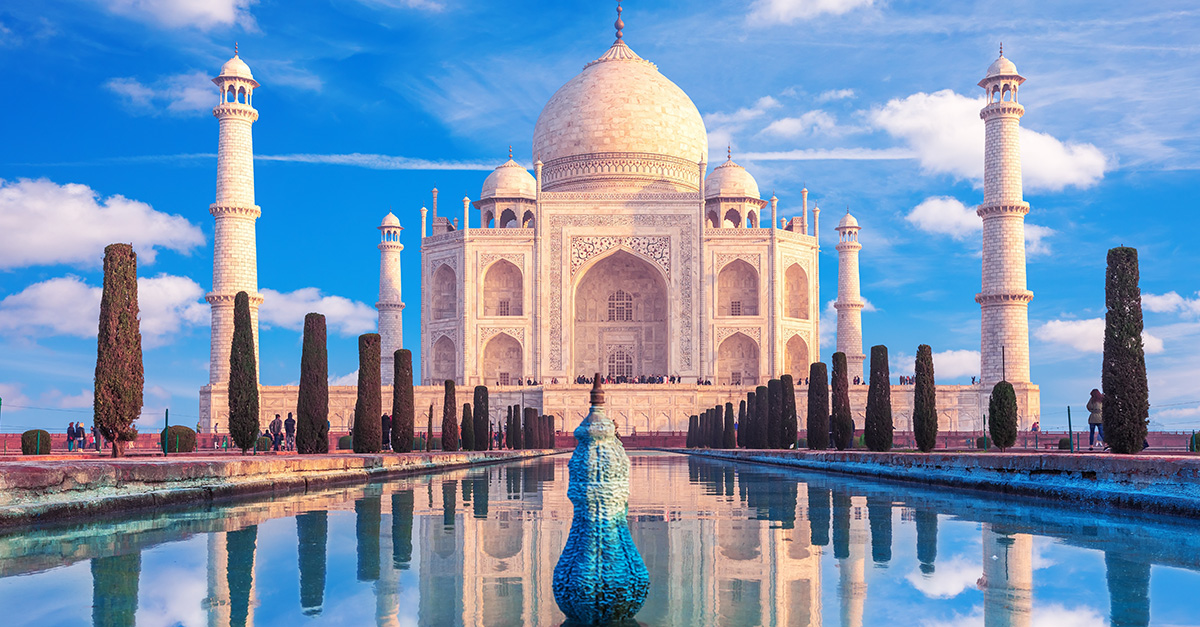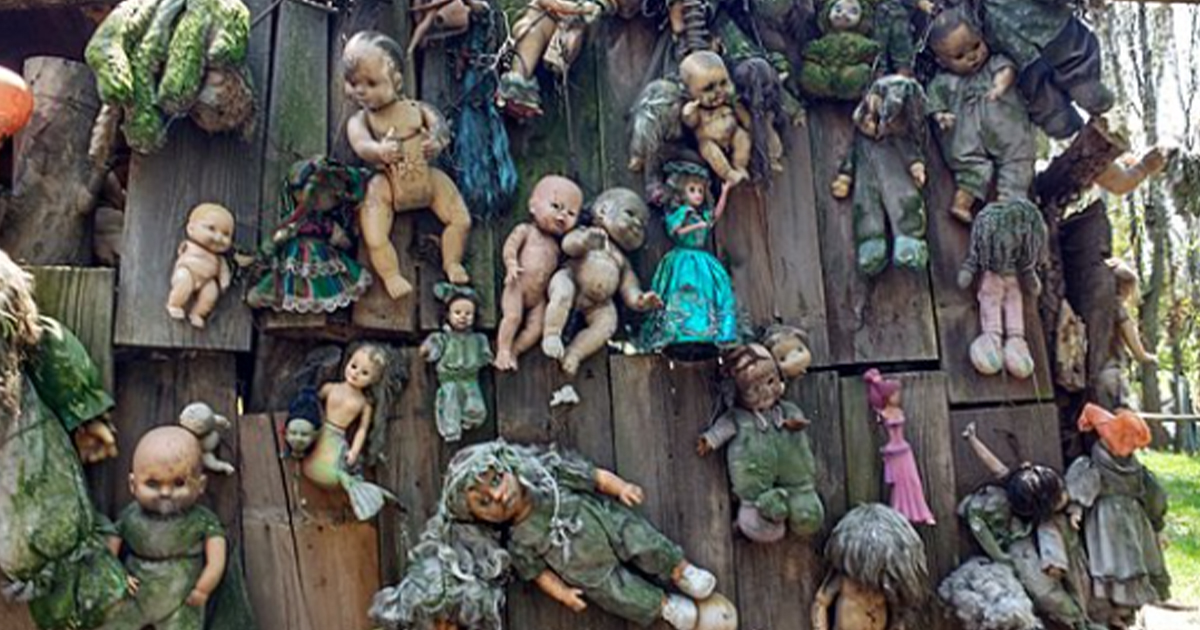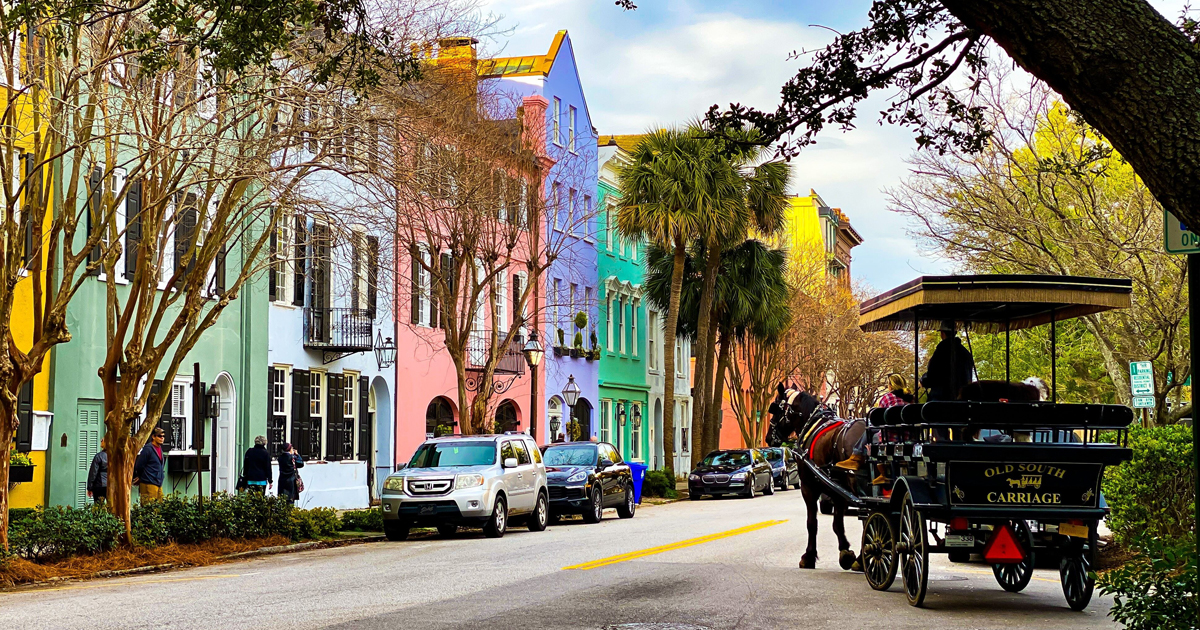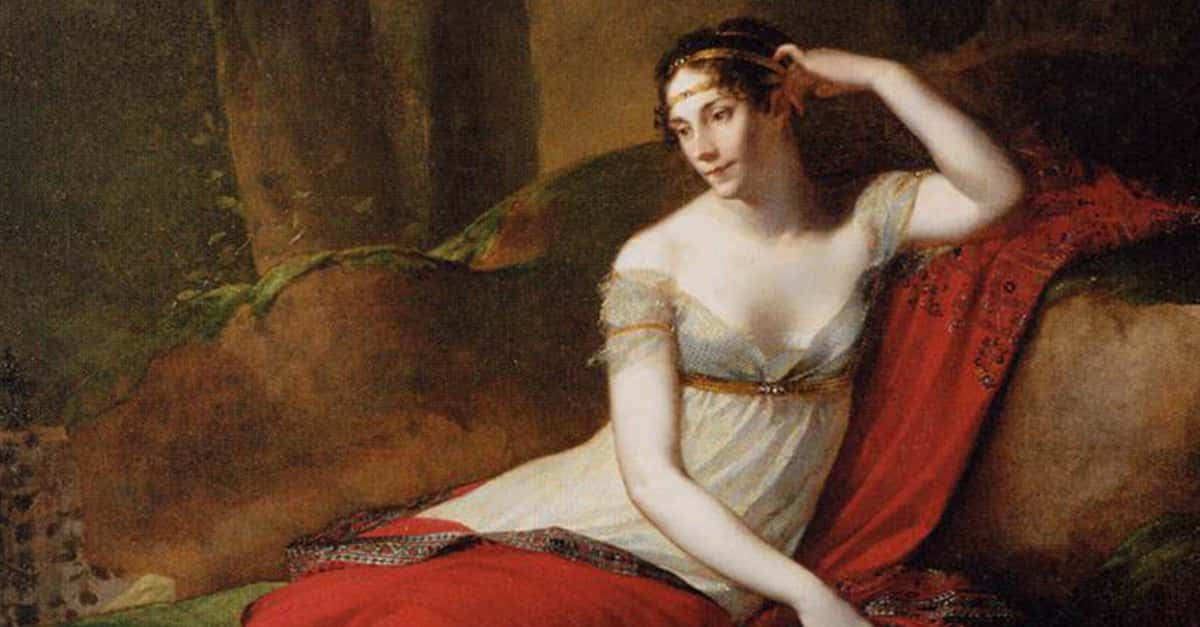The World's Most Famous Mausoleums
Mausoleums are large, free-standing burial sites that entomb one or more people. Most mausoleums are associated with royalty and/or heads of state. The word originated in the 4th century BC, when Persian Governor "Mausolus" had a grand tomb built for himself. Let's examine some of the world's most famous mausoleums.

Taj Mahal
The Taj Mahal isn't just India's most famous building and a fantastic tourist attraction. It's also a mausoleum. Emperor Shah Jahan built it in 1632, two years after the death of his wife, Mumtaz Mahal, the building's namesake. It was completed in 1648. The direct translation of "Taj Mahal" is "Crown Palace".
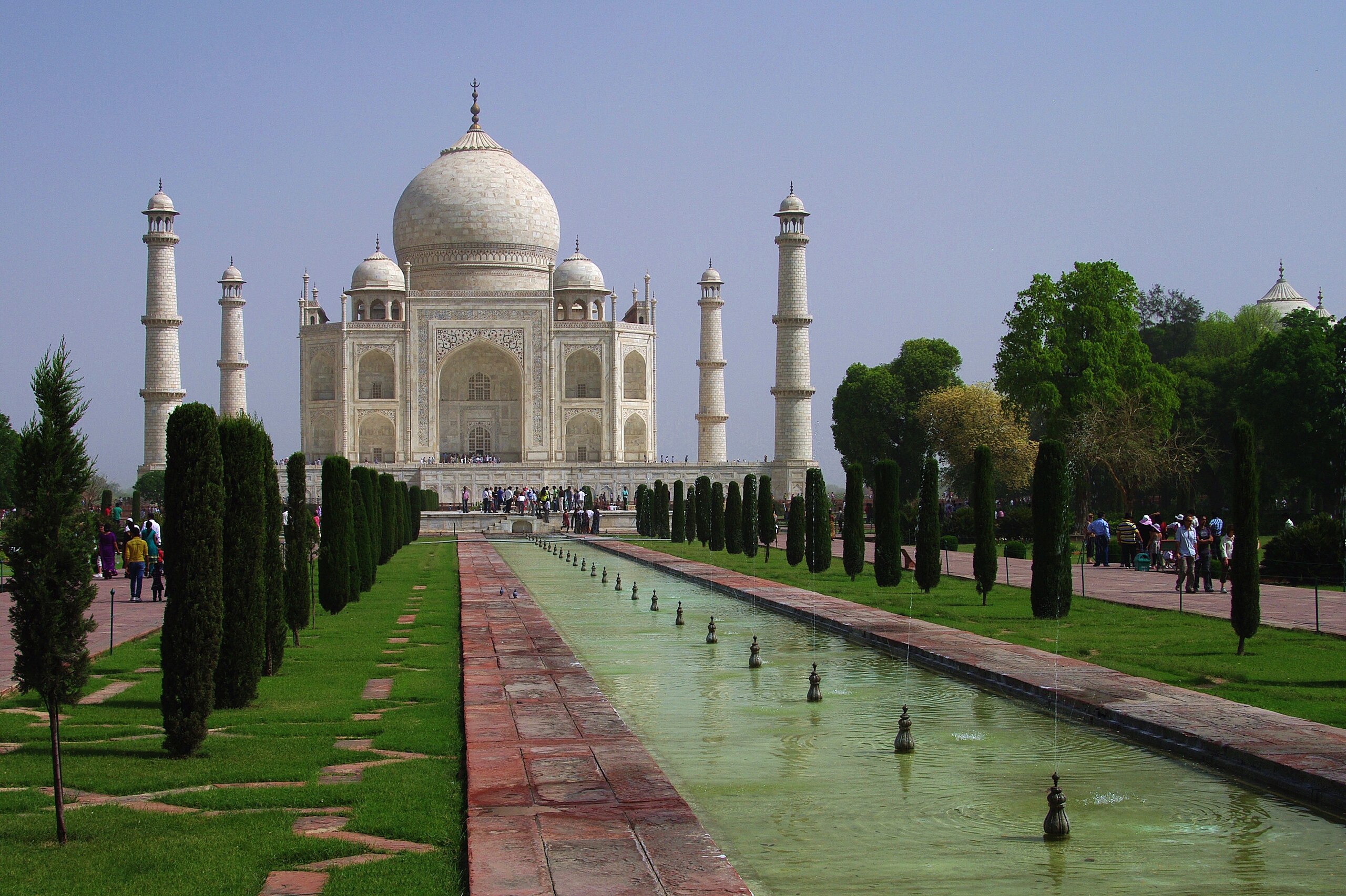 Jean-Marc Astesana, CC BY-SA 2.0, Wikimedia Commons
Jean-Marc Astesana, CC BY-SA 2.0, Wikimedia Commons
Mausoleum Of The First Qin Emperor
The first emperor of the Qin Dynasty in China was Qin Shi Huang. He died in 210 BCE—and to commemorate the Emperor, a mausoleum was built over a 38-year period from 246 to 208 BCE. This mausoleum is the largest in the world, spanning over 20 square miles.
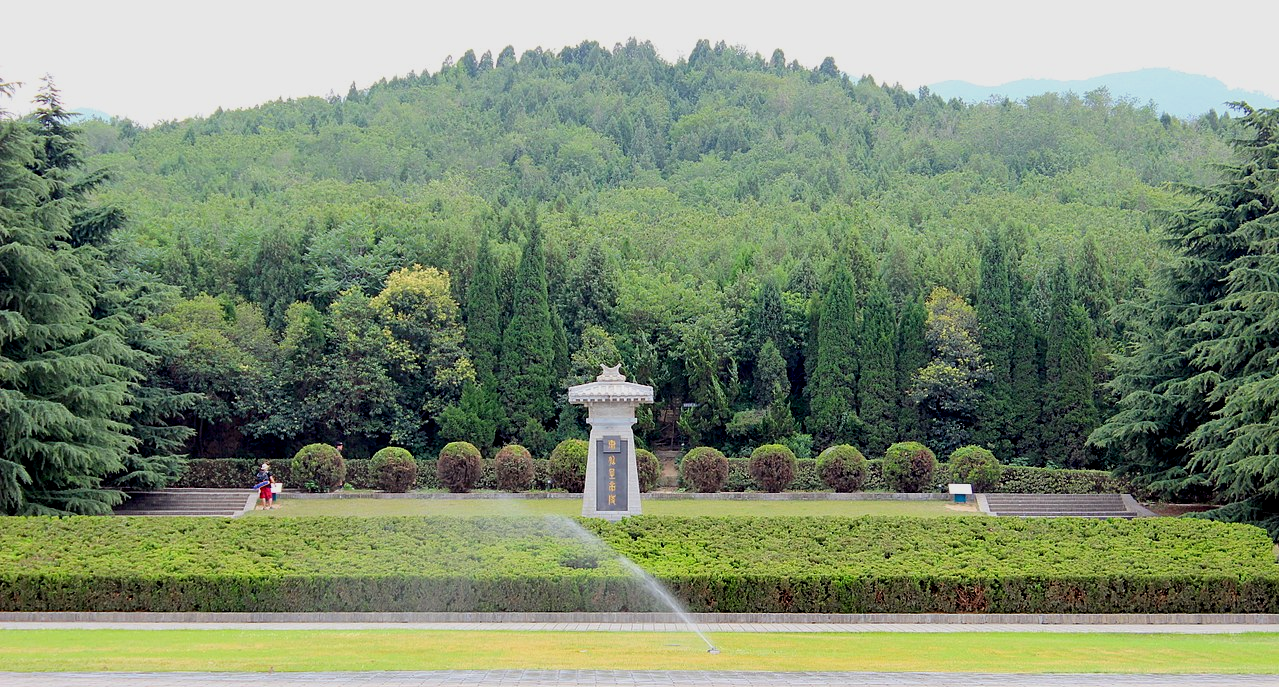 Aaron Zhu, CC BY-SA 3.0, Wikimedia Commons
Aaron Zhu, CC BY-SA 3.0, Wikimedia Commons
The Tomb Of Lenin
The leader of the Russian Revolution, Vladimir Lenin is entombed in Moscow in a huge mausoleum, one of the only ones in the world, where his body lies on-display, embalmed and maintained by the Russian state. Located in Moscow's Red Square, the Tomb attracts millions of visitors every year and, since 1924, has been a permanent fixture for one of the most pivotal figures of the 20th century.
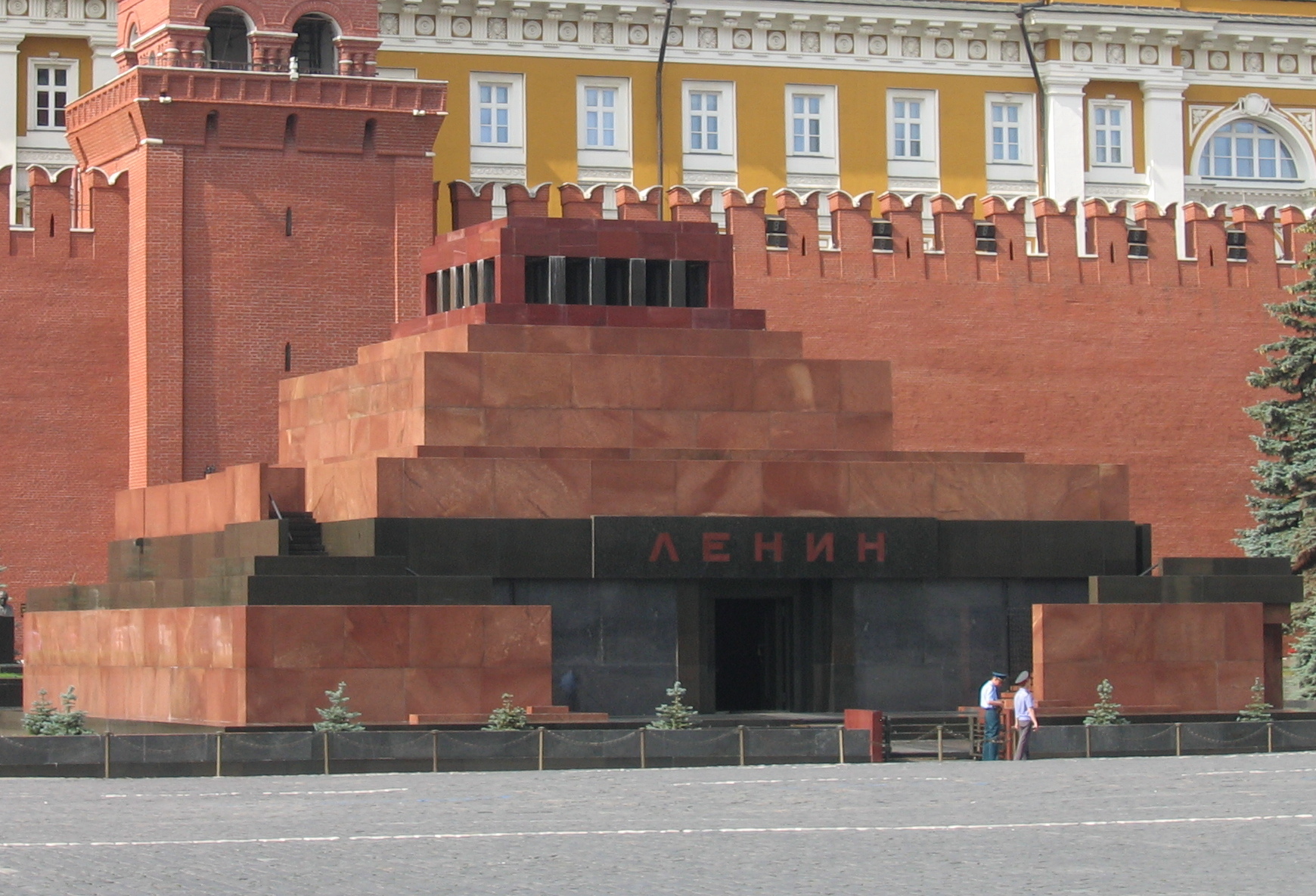 Staron, CC BY-SA 3.0 , via Wikimedia Commons
Staron, CC BY-SA 3.0 , via Wikimedia Commons
The Mausoleum Of Augustus
The Romans had a thing for mausoleums, beginning with that of their very first emperor, Augustus—who became emperor after the death of Julius Caesar. Augustus had the tomb built in 28 BCE. It is located on the Piazza Augustus Imperatore, which runs along the banks of the Tiber River. It has recently been significantly restored following years of neglect.
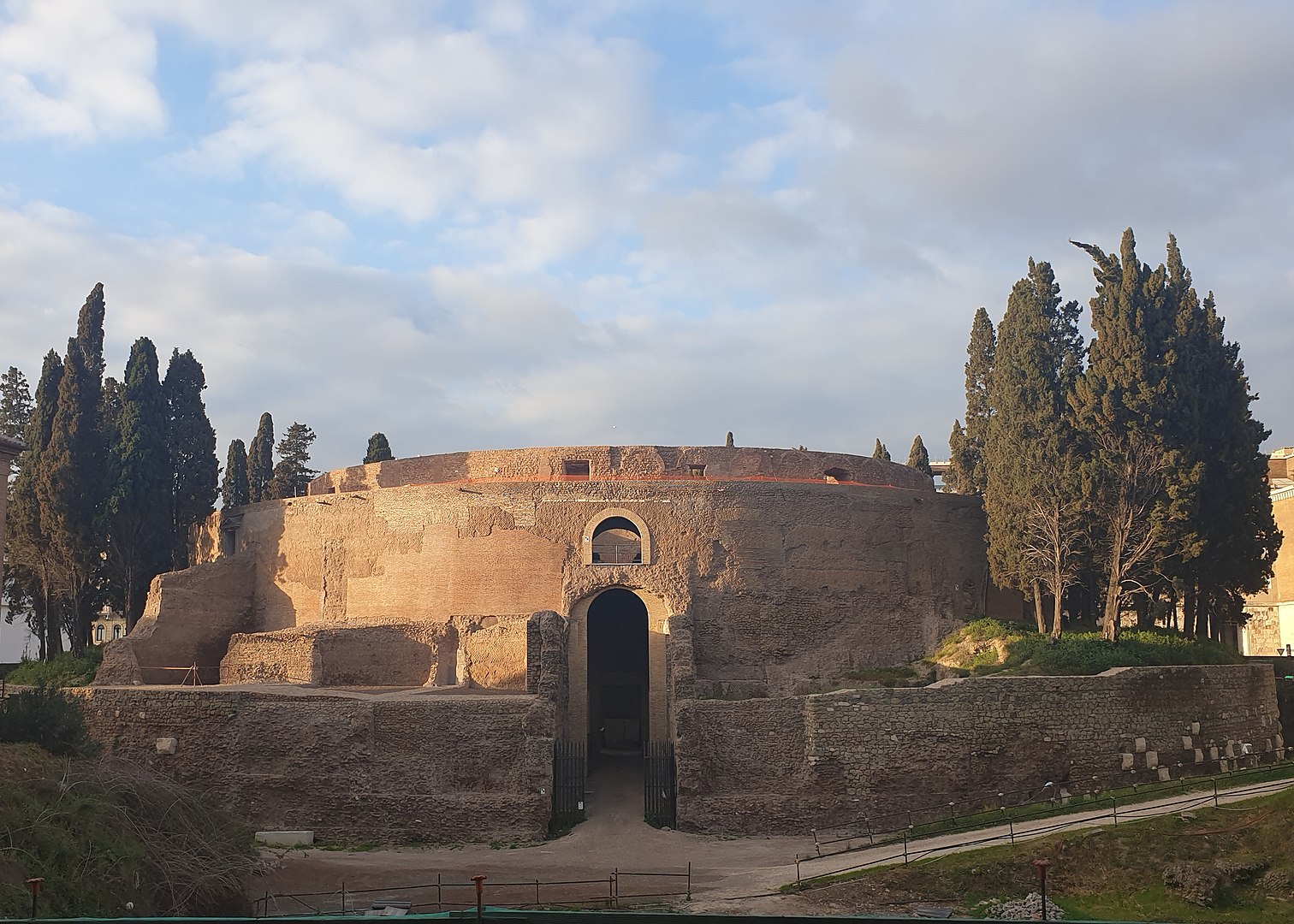 MumblerJamie, CC BY-SA 2.0, Wikimedia Commons
MumblerJamie, CC BY-SA 2.0, Wikimedia Commons
Hadrian's Mausoleum
A wall and a mausoleum? What more could a man want, right? Roman Emperor Hadrian had his mausoleum constructed between 117 AD and 138 AD, as a burial site for himself and his immediate family. It was once Rome's tallest building.
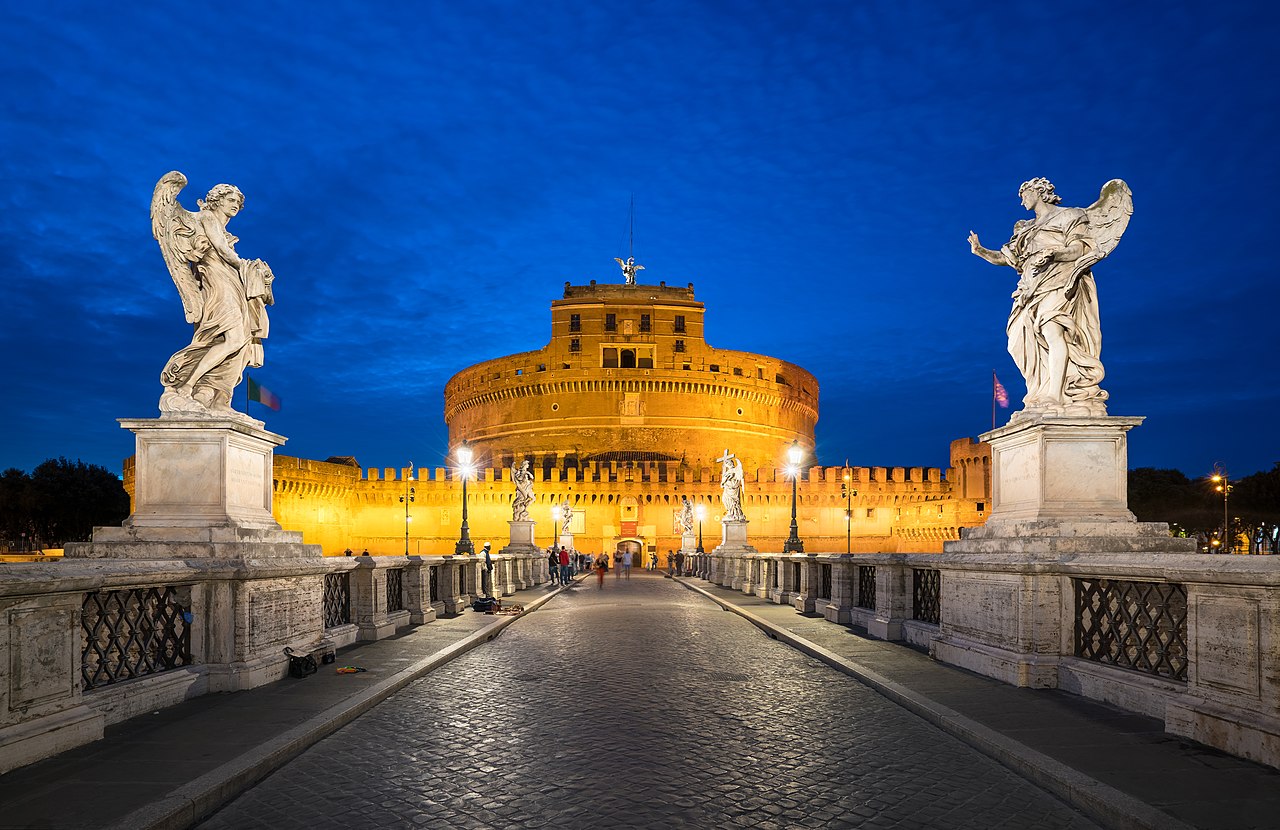 Thomas Wolf, CC BY-SA 3.0 DE, Wikimedia Commons
Thomas Wolf, CC BY-SA 3.0 DE, Wikimedia Commons
Jahangir's Mausoleum
This incredible tomb in Pakistan houses the remains of Emperor Jahangir, who was emperor of Hindustan (modern-day Pakistan) until 1627. The emperor had the gorgeously colorful and intricately-designed mausoleum (complete with four towering minarets) built near the India-Pakistan border. Entry to the mausoleum is free.
 DanishKausar, CC BY-SA 3.0, Wikimedia Commons
DanishKausar, CC BY-SA 3.0, Wikimedia Commons
The Great Pyramid Of Giza
Easily one of the most famous mausoleums in the world are the Great Pyramids in Giza, Egypt. The Egyptian Pyramids were constructed between 2589 and 2504 BCE by three Egyptian Pharaohs: Khufu, Khafre, and Menkaure. The original Great Pyramid, built by Khufu, contains 2.3 million stone blocks and was constructed from mortar, granite, and limestone.
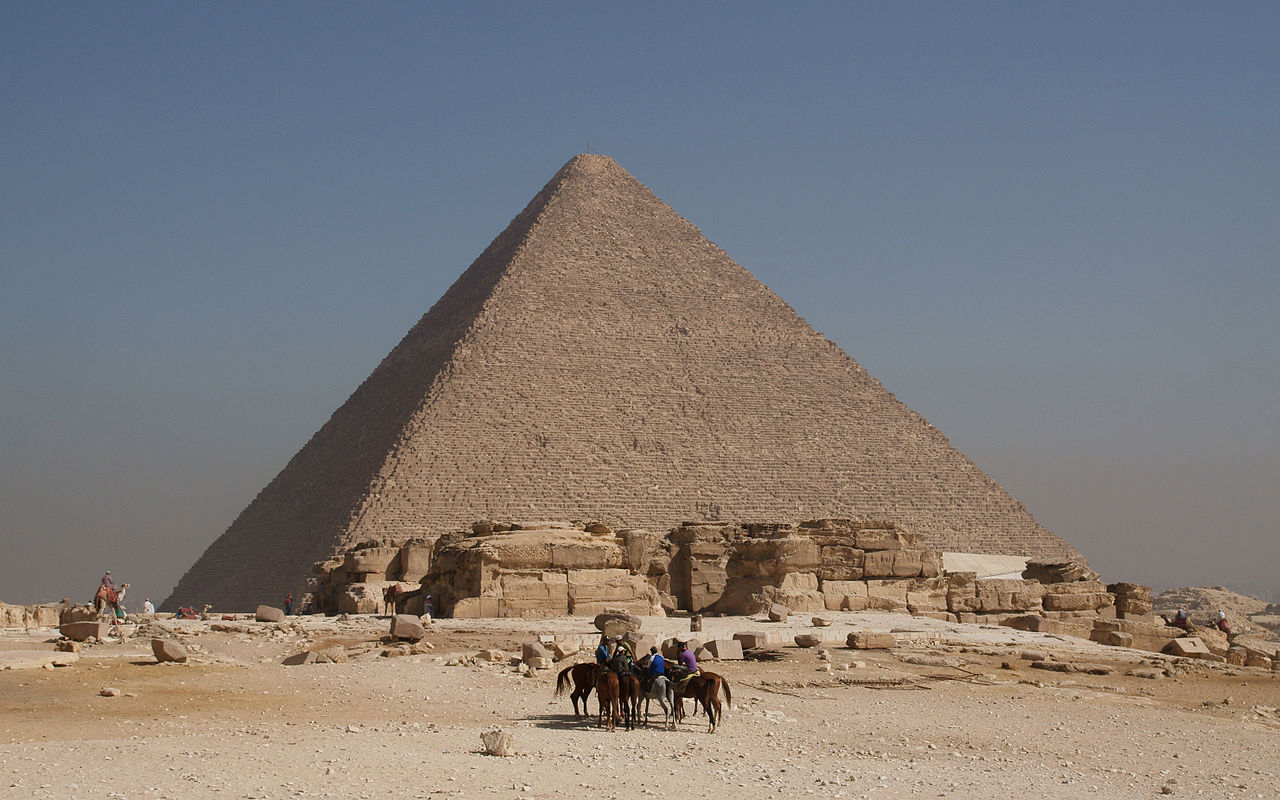 kallerna, CC BY-SA 3.0, Wikimedia Commons
kallerna, CC BY-SA 3.0, Wikimedia Commons
Mao-soleum
This mausoleum houses the body of Chinese revolutionary dictator, Mao Tse-tung, who founded the People's Republic of China on October 1, 1949 in Beijing. His body lies in a permanent state in the mausoleum in Beijing, encased in a clear crystal coffin. Mao's burial site sits in Tiananmen Square.
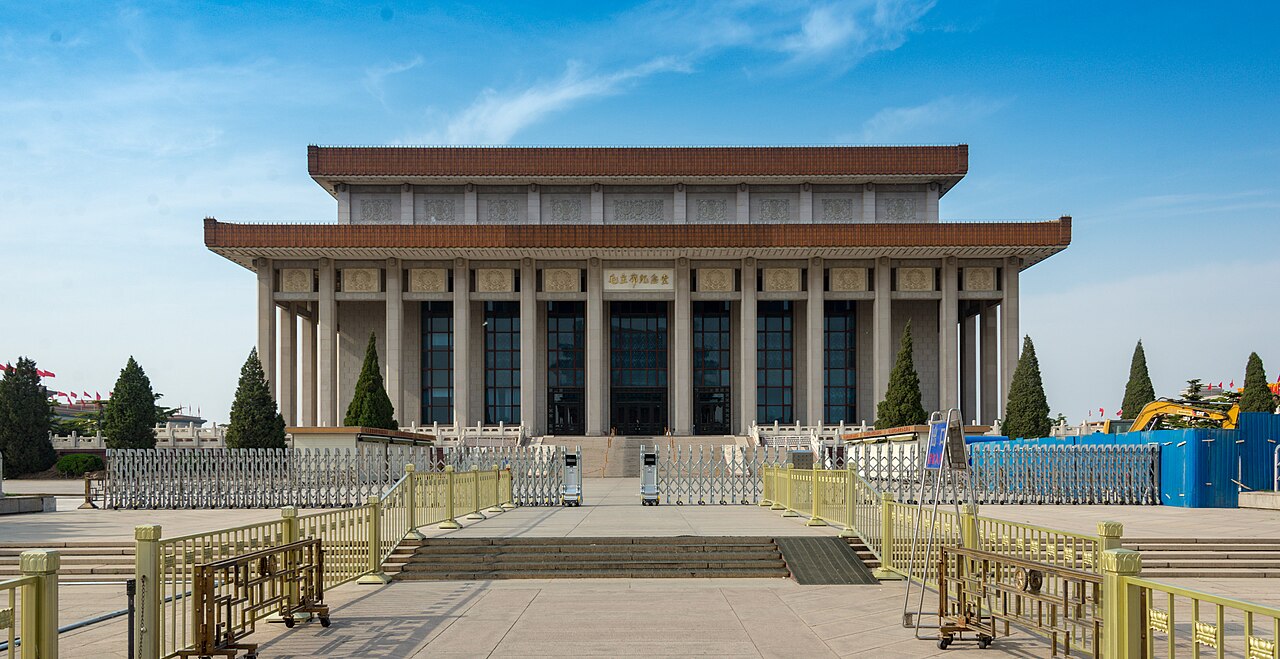 xiquinhosilva, CC BY 2.0, Wikimedia Commons
xiquinhosilva, CC BY 2.0, Wikimedia Commons
Imam Husayn Shrine
Located in Karbala, Iraq (one of the country's holiest cities), it contains the remains of Imam Husayn ibn Ali—the third Imam of Islam and one of the holiest people in Shi'a Islam. Millions of Shi'ite Muslims visit Ali's tomb every year. Elaborate gold decorations adorn the inside and the exterior of the mosque is lit with a multitude of colors each night.
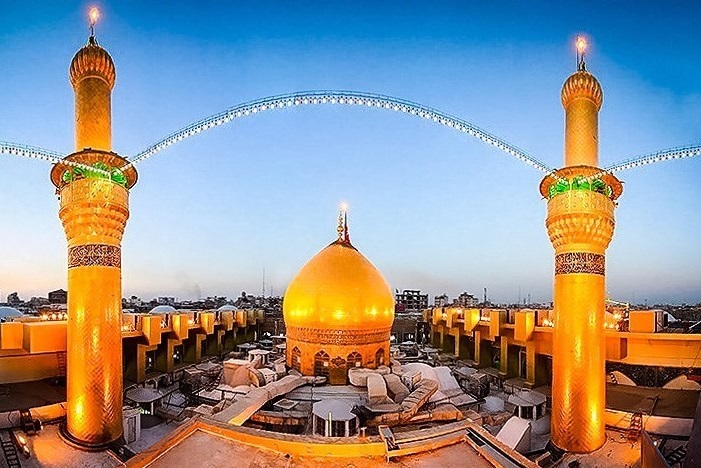 Tasnim News Agency, CC BY 4.0, Wikimedia Commons
Tasnim News Agency, CC BY 4.0, Wikimedia Commons
Grant's Tomb
While you may think of mausoleums as being constructed in far-off places—there's actually one in the United States! It's known as Grant's Tomb and was built for Ulysses S Grant, commanding General of Union Army during the American Civil War. Entombed there are General Grant and his wife in the largest mausoleum in North America.
 Professorcornbread, CC BY-SA 4.0, Wikimedia Commons
Professorcornbread, CC BY-SA 4.0, Wikimedia Commons
The Panthéon
The Panthéon in Paris, France is a mausoleum built to house French heroes, but was originally intended to be a church, as it was constructed on the orders of then-King Louis XV. To be entombed in the crypt of The Panthéon, you have to be considered a National Hero—and the French Parliament must vote on it. Among the exclusively-interred are Victor Hugo, Voltaire, Rousseau, Louis Braille, Marie Curie, and Simone Veil.
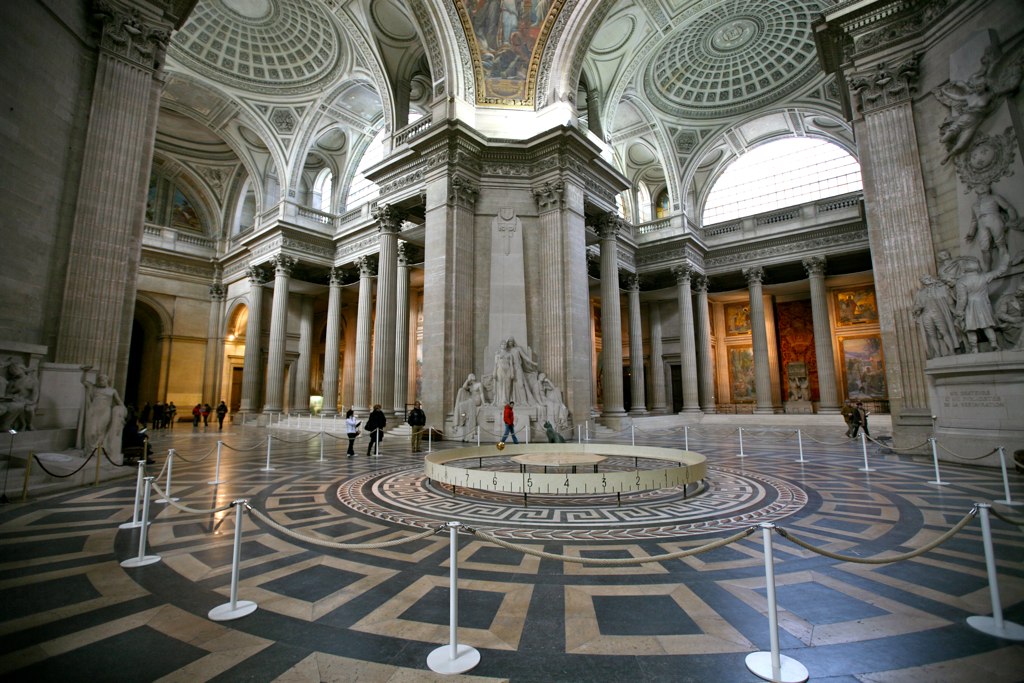 Alex Proimos, CC BY 2.0, Wikimedia Commons
Alex Proimos, CC BY 2.0, Wikimedia Commons
Mausoleum At Halicarnassus
The very first mausoleum was built by Persian Governor Mausolus in the ancient Greek city of Halicarnassus, which is today known as Bodrum, Turkey. Built between 353 and 351 BC, also entombed with Governor Mausolus is his sister-wife (yes, you read that right), Artemisia II.
 FollowingHadrian, CC BY-SA 4.0, Wikimedia Commons
FollowingHadrian, CC BY-SA 4.0, Wikimedia Commons
The Royal Mausoleum
Known as the Royal Mausoleum, this building in Berkshire, England, houses the remains of Queen Victoria and her husband, Prince Albert. Construction began in 1862, after Victoria and Albert both wanted a final resting place constructed for the two of them some years prior. Traditionally, British monarchs are buried at Westminster Abbey or St George's Chapel. The site was chosen by the Queen just four days after Albert died. The total cost was £200,000 and was funded entirely by the Queen from her private funds.
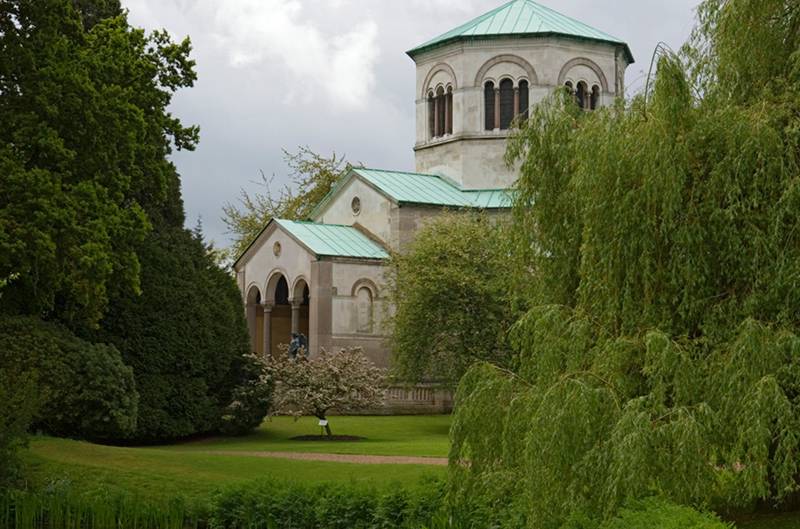 WyrdLight.com, CC BY-SA 3.0, Wikimedia Commons
WyrdLight.com, CC BY-SA 3.0, Wikimedia Commons
Stanford Mausoleum
Located on the grounds of Stanford university, the Stanford Mausoleum houses the remains of the University's namesake, Leland Stanford, and his parents. The mausoleum is closed to the public except for one day in October for Founder's Day at the University, when a wreath is laid at the tomb of Stanford's philanthropic founder.
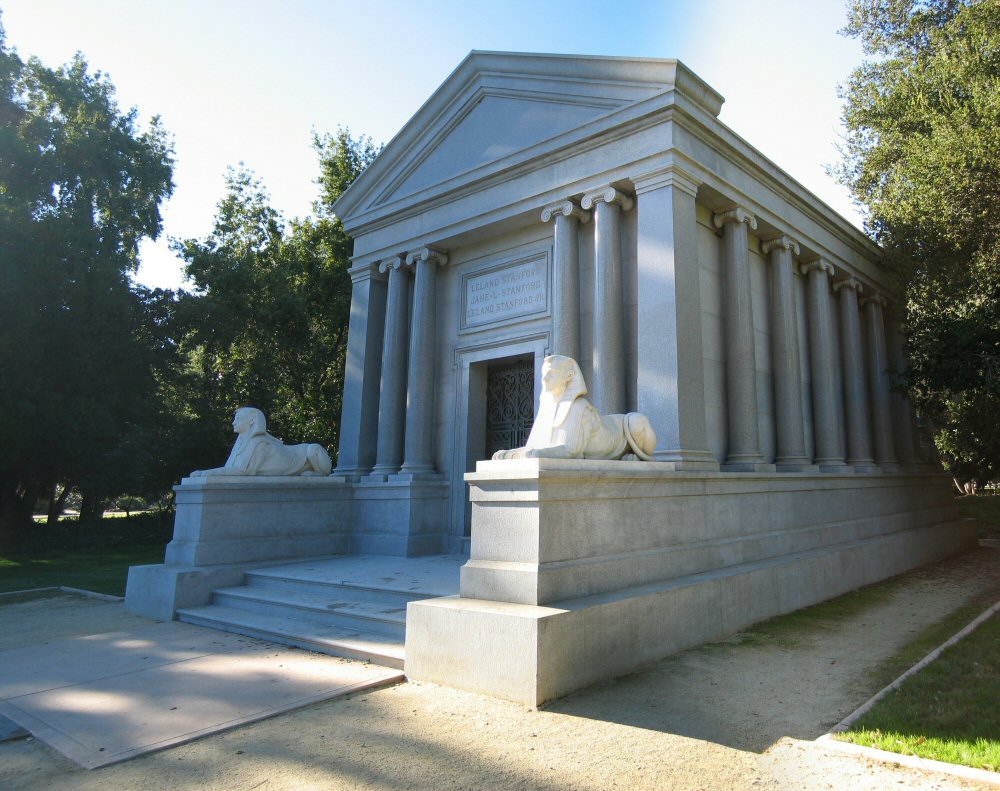 Jawed Karim, CC BY-SA 3.0, Wikimedia Commons
Jawed Karim, CC BY-SA 3.0, Wikimedia Commons
The Tomb Of Agamemnon
The finest remaining example of what is known as a "Beehive Tomb" is the Tomb of Agamemnon, the King of Mycenae who commanded the Achaeans during the Trojan War. Archaeologists suspect that the tomb was built around 1250 BCE. It is also the site of the Treasury of Atreus, with a horde of gold found inside in the 1870s, including the Mask Of Agamemnon, a gold mask measuring 23 centimeters high and 20 centimeters wide. It was considered one of the most priceless artifacts, although it is now believed to be a forgery, with modern archaeologists believing it dates back to the 16th century, 300 to 400 years after the Trojan War.
 Ken Russell Salvador, CC BY 2.0, Wikimedia Commons
Ken Russell Salvador, CC BY 2.0, Wikimedia Commons

